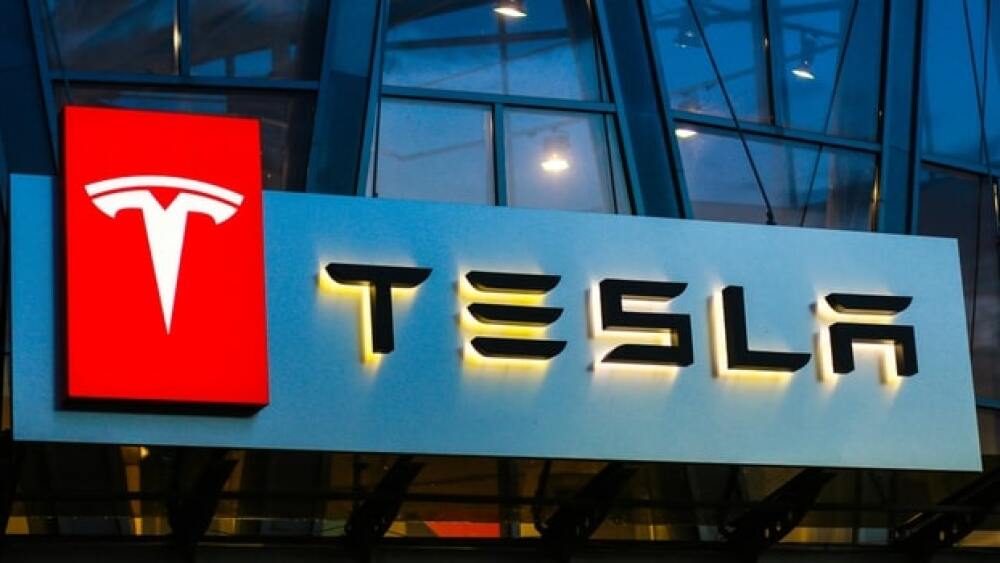The “printers” are portable, automated messenger RNA (mRNA) production units, which Elon Musk referred to as “RNA microfactories.”
Vitaliy Karimov/Shutterstock
Tesla, the electric car company founded and run by Elon Musk, is building mobile molecular printers to assist Germany’s CureVac in manufacturing its experimental COVID-19 vaccine. Musk tweeted the information on Wednesday, July 1.
The “printers” are portable, automated messenger RNA (mRNA) production units, which Musk referred to as “RNA microfactories.”
ad
CureVac’s approach to a COVID-19 vaccine is built on mRNA technology, similar to what is being used by Moderna, Pfizer and BioNTech. It takes a small piece of messenger RNA that codes for a specific molecule on the virus’s surface. When injected into the body, it causes cells to churn out that molecule, which will train the immune system to identify the virus and neutralize it before it can replicate. No mRNA products have been approved for use yet.
The Tesla printers are being designed to be used in remote locations. They would manufacture the vaccine candidate and other potential mRNA-based therapies using whatever recipe is programmed into them.
Otherwise, CureVac is building a more typical manufacturing facility that can increase its production of the vaccine tenfold to billions of doses.
The printers are being built at Tesla Grohmann Automation in Germany. Tesla acquired the company in 2016, which develops automated manufacturing systems for batteries and fuel cells.
On June 17, CureVac announced that it had the go-ahead to begin the Phase I clinical trial of its COVID-19 vaccine in Germany and Belgium. The first patients will be vaccinated at the Institute for Tropical Medicine in Tubingen, Germany and the Ghent University Hospital in Belgium, the Tropical Institute of the University Hospital Munich, LMU, and the Hannover Medical School, also in Germany.
The trial is a dose escalation study that will include 168 healthy volunteers between the ages of 18 and 60. They will receive doses in a range of 2 micrograms to 8 micrograms, with the focus on picking the optimal doses and to evaluate the safety and immune profile of the vaccine.
“We are convinced that we are on the right track with our SARS-CoV-2 vaccine candidate,” said Mariola Fotin-Mleczek, CureVac’s chief technology officer, at the time. “The data we generated in various animal models indicated that the vaccine candidate induces high virus neutralizing antibody titers compared to sera from patients who recovered from COVID-19 disease. Immune response induced by our vaccine candidate was well balanced and included the generation of spike protein specific T-cell responses. We now look forward to confirm these results in humans.”
CureVac has funding for its COVID-19 vaccine programs from the Coalition for Epidemic Preparedness Innovations (CEPI), which includes support from the Bill & Melinda Gates Foundation.
According to the World Health Organization, 17 groups have taken their COVID-19 vaccines into human clinical trials. Yesterday, the Pfizer and BioNTech partnership announced preliminary data from the most advanced of four of its vaccine candidates against SARS-CoV-2, the virus causing COVID-19. The BNT162 program is studying at least four vaccines, each having a different combination of mRNA format and target antigen. The preliminary data is for BNT1621b1, which encodes an optimized SARS-CoV-2 receptor binding domain (RBD) antigen.
Moderna and the U.S. National Institute of Allergy & Infectious Diseases (NIAID) are moving their mRNA COVID-19 vaccine into a Phase III clinical trial in 30,000 healthy volunteers this month. The patients will be randomized 1:1 to receive either a placebo or the vaccine. The primary endpoint of the trial will be prevention of symptomatic COVID-19 disease, with key secondary endpoints including prevention of severe COVID-19, defined as hospitalization, and prevention of infection by SARS-CoV-2.
Oxford University, which is also very far ahead in the race to develop a vaccine, reported today encouraging immune responses for their vaccine, AZD1222, which is licensed to AstraZeneca. To date, about 8,0000 volunteers have been enrolled in their Phase III trial.





